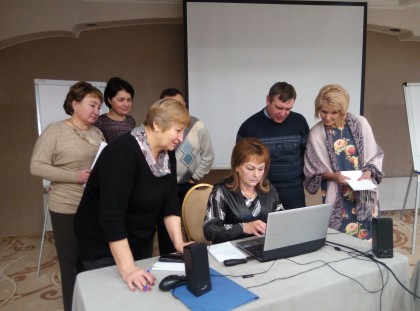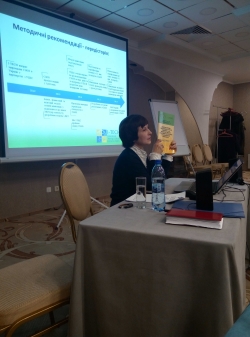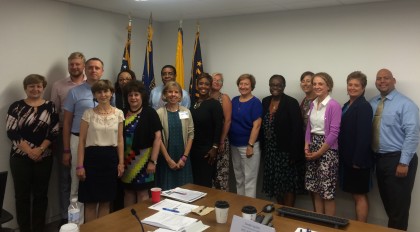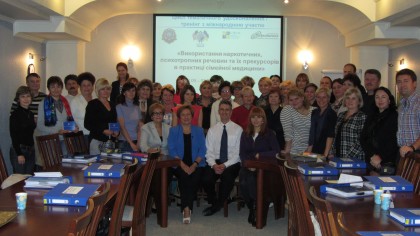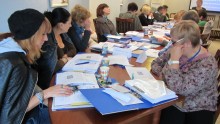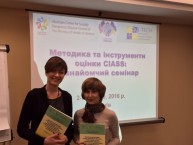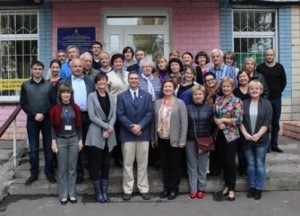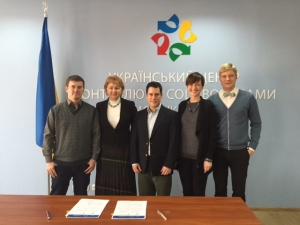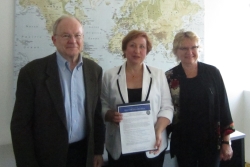
Dr. Joseph Merrill (left) speaks through an interpreter at the Ukrainian National Conference.
On Sept. 25-26, Ukraine hosted “The Principles for the Management of Drugs, Psychotropic Substances and Its Precursors in General Practice Settings,” the first national conference of its kind. Initiated and organized by the International Renaissance Foundation (IRF) and other international and national stakeholders, including the International Training and Education Center for Health (I-TECH), the event brought together more than 300 experts, including general practitioners and family physicians, state officials, policy makers, infectious disease doctors, narcologists, psychiatrists, and palliative care providers.
The key goal of the conference was to educate primary health care providers on the application of controlled substances in key areas of their practice – such as medication assisted treatment (MAT), often referred to as opioid substitution therapy (OST); palliative care; and mental health – as well as initiate a dialogue about decentralization of these services through primary health centers (PHC) and coordination with specialized facilities and medical specialists.
Joseph Merrill, MD, MPH, an internal medicine physician and associate professor in the University of Washington’s Department of Medicine, delivered a keynote speech on OST in the practice of the family doctor. He also facilitated a day-long section on OST in partnership with local OST expert Vadim Klorfain, MD, from Poltava.
“Dr. Merrill’s contribution was greatly appreciated by the IRF and other conference organizers,” said Anna Shapoval, I-TECH Ukraine Project Director. “His successful participation in the conference seems to indicate a promising start to expanding I-TECH’s activities in this area in the future.”
Topics discussed included the basics of addiction and measuring success in addiction treatment; OST with methadone and buprenorphine; co-occurring medical and psychiatric conditions such as HIV infection, depression, tuberculosis, and viral hepatitis; and the advantages of integrating OST into the practice of family doctors.
Dr. Merrill says the last topic is particularly important to ensure increased access to care. “With the current siloed system, specialties have narrowly defined roles, which often has a negative impact on people with co-existing problems, such as HIV, mental health, and addiction,” says Dr. Merrill. “These individuals currently have to access multiple systems to get reasonable care.”
He also cites efforts to integrate HIV specialists into OST sites as a step in the right direction, as the HIV epidemic in Ukraine is driven in large part by injecting drug users and their sexual partners.
Dr. Merrill had the opportunity to visit an overburdened OST site at the City Clinical Hospital #5, next to the Kyiv City AIDS Center. “There were too many patients for the amount of staff, and there wasn’t any onsite counseling or psychosocial treatment when I was there,” he says. “We continue to have the same issues here in the U.S., where it is easier to implement medication than the treatment around the medication.”
To inform efforts to bring this care into family practice, Ukraine hopes to learn from the experiences we’ve had in the U.S., he says.
Recent health care reform, still under way in Ukraine, brought significant changes in legislation and regulations that now enable access to narcotic, psychotropic, and precursor substances at PHC facilities. The 2013-2020 National Drug Strategy of Ukraine envisions development of a humanistic model of drug policy, moving away from law-enforcement approaches to prevention and treatment, including broadening access to controlled substances – such as OST – to those patients in need.
“Ukraine is in a crisis situation, and that is both an obstacle to change and an opportunity for change,” says Dr. Merrill. “They are making a really strong effort to change their health care systems for the better, and they seem to really rally around each other and try to move forward in spite of the challenges they face.”
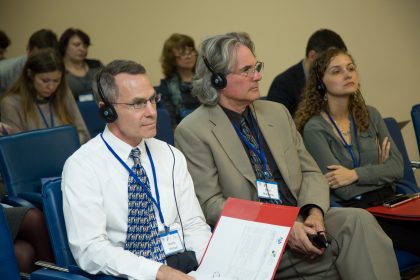
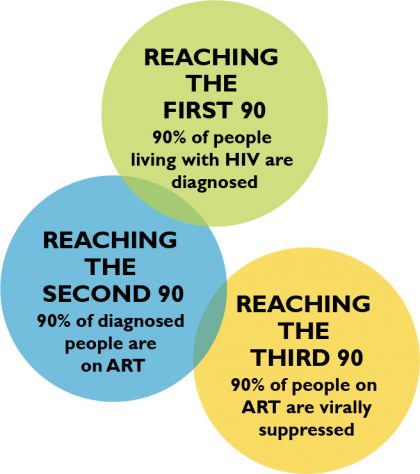 The workshop aimed to support the development of efficient strategies to achieve the UNAIDS 90-90-90 goals: 90% of HIV-positive people know their status, 90% of those are on treatment, and 90% of those are virally suppressed. To this end, the workshop covered national situational analysis, national clinical recommendations, and service delivery models with the highest potential for adaption in country.
The workshop aimed to support the development of efficient strategies to achieve the UNAIDS 90-90-90 goals: 90% of HIV-positive people know their status, 90% of those are on treatment, and 90% of those are virally suppressed. To this end, the workshop covered national situational analysis, national clinical recommendations, and service delivery models with the highest potential for adaption in country.